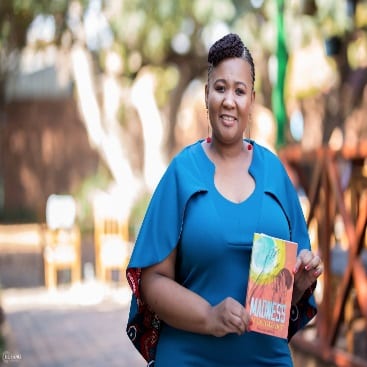By Mamotladi Ivy Matloga
I just wrote an article around the stigma surrounding mental illnesses as a cluster, for the South African Depression and Anxiety Group (SADAG) Journal Mental Health Matters. In that article I talk specifically about the stigma surrounding mental illnesses and that the stigma could, by and large, be alleviated through information and awareness. In this post, I will share a summary of my book as relating to how mental illnesses are viewed and regarded in the part of South Africa I grew up in. The views in the book are either based on my observations, analysis or imagination.
In Madness in Duggart, we see those that battle mental illnesses being subjected to ridicule by innocent children. This mocking happens sometimes in front of parents that see nothing wrong with such behaviour. I think that through education, children can be made aware of mental disorders as this will make them more sensitive and considerate towards affected people and their families. Growing up I played with kids that teased people with mental illnesses. I remember laughing as the naughty kids got themselves chased after by their agitated targets. Being naturally meek I never participated in the actual ridiculing activities even before my own brother was diagnosed with psychosis. Having a brother with psychosis now, I can only be glad I never took part in the teasing of the mentally ill. I would probably have found it very hard to forgive myself.
This very fact, that those like my brother got teased, made it particularly difficult for me to adjust to his condition when he was first diagnosed. I could not bear to think of him being a victim of the mockery that everyone seemed content with. I think this is partly where the shame associated with diseases like schizophrenia and psychosis comes from.
The other causes of stigma relate to cultural beliefs and the association of mental illness with curses and witchcraft. In the book, we see a woman who lives with schizophrenia being discriminated against even as she and her family try to make a living by selling a popular homemade beverage – marula beer. People in this village do not support her business precisely because of the woman’s schizophrenia being related to curses. They do not have to spell it out but in their minds, whatever Lekgolo sells would be contaminated.
My novel addresses some of these challenges and seeks to make people understand that, firstly, nobody can choose to have a mental illness. It can happen to anyone for any number of reasons ranging from environmental to biological. Secondly, people with mental illnesses have dreams and things they want to achieve too, and with proper support they are well capable of achieving their dreams and being active members in the economy. The madness of it all is the prejudice in our society.
A lot of humour is used in the novel to drive home certain difficult messages. It is not taboo to laugh at the funny things that people say and do when they experience episodes, as long as the underlying feeling is of love, compassion, and not mockery.
Madness in Duggart is available on Amazon: https://www.amazon.com/Madness-Duggart-Mamotladi-Ivy-Matloga-ebook/dp/B072JTRL7M
In South Africa, the book can be ordered online from: www.afrokulcha.co.za/product/madness-in-duggart/


